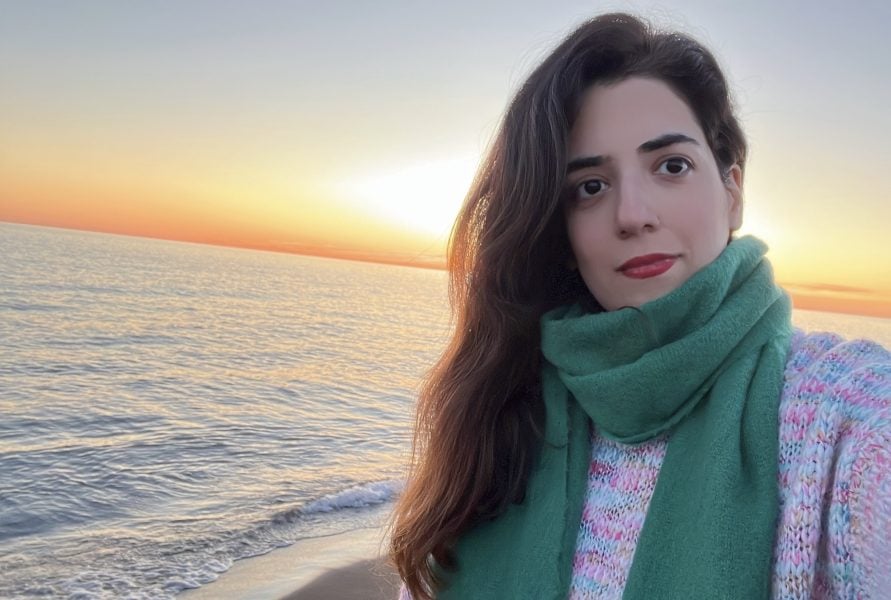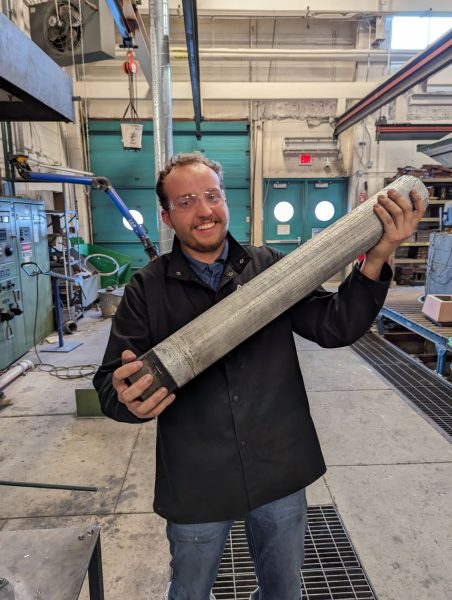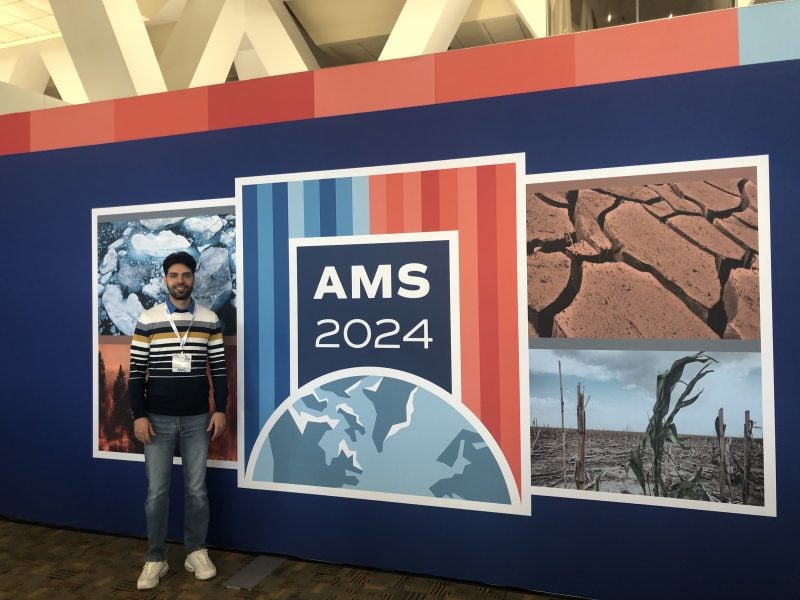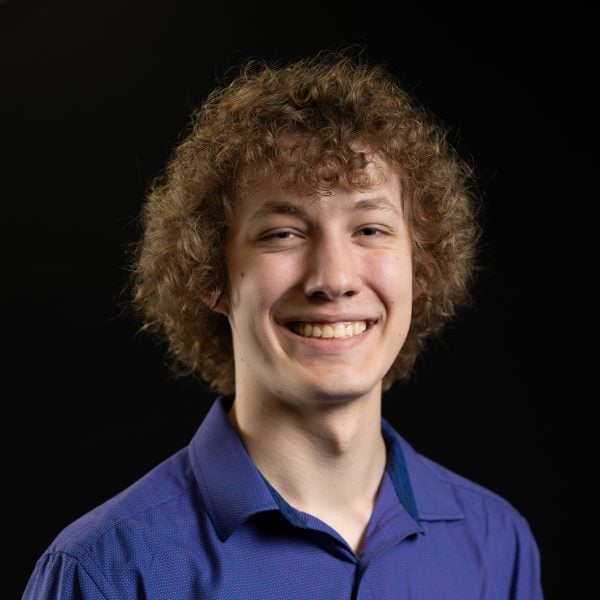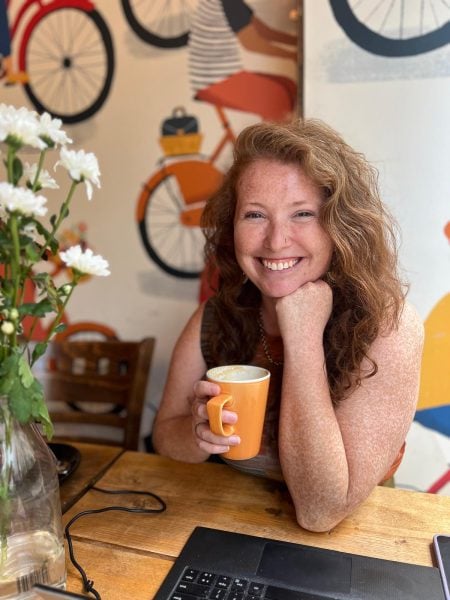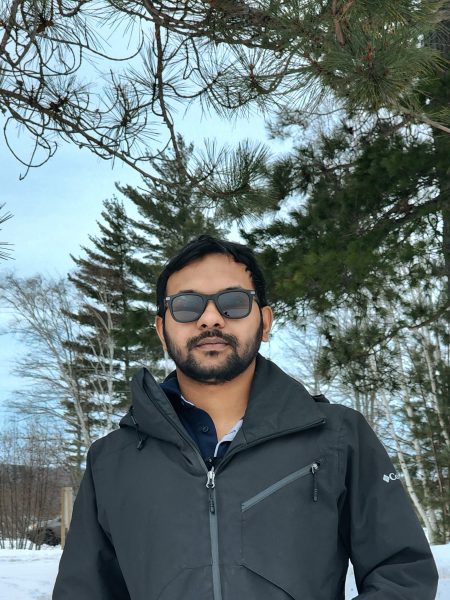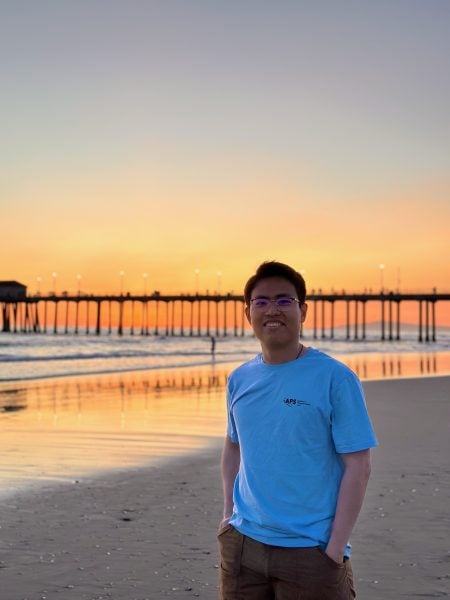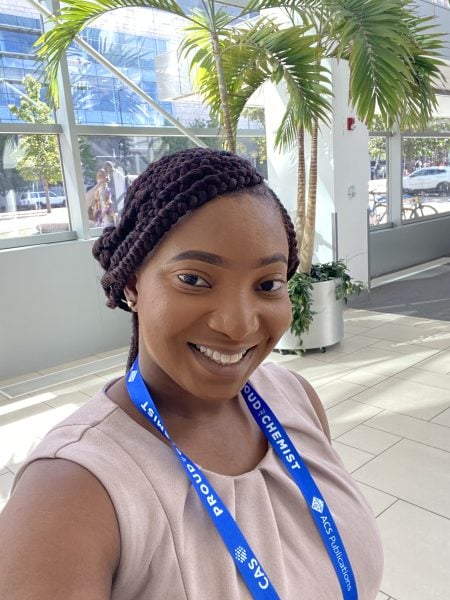
When I received my Ph.D. offer from Michigan Technological University, I was both excited and uncertain, having just been awarded another fully funded scholarship elsewhere. After reflecting on the research opportunities, mentorship, and environment that would best support my growth, I chose Michigan Tech, a decision that initially came with moments of doubt. Everyone had warned me about the cold, but no description could have prepared me for the first winter. During those early months, I sometimes wondered whether I had made the right choice. However, as I settled into my research group, connected with my advisor, and experienced the warmth and support of the Michigan Tech community, my uncertainty gave way to a deep sense of purpose and belonging. What began as a difficult decision has become one of the most rewarding experiences of my academic journey.
This growing sense of purpose translated into my research, which lies at the interface of chemistry and biology, focused on developing molecular tools for understanding disease mechanisms. My research centers on the design and synthesis of near-infrared fluorescent probes for detecting and monitoring key biomolecules in living systems. These probes help visualize complex biological processes such as enzyme activity, oxidative stress, and microenvironmental changes that are critical for early cancer detection and therapy. Working at the intersection of chemistry, biology, and imaging science has strengthened my creativity, problem-solving skills, and passion for translational research that bridges laboratory discovery with real-world health impact.
The journey has not been without challenges, but it has shaped me profoundly. My time at Michigan Tech has taught me resilience, perseverance, and adaptability. It has reminded me that meaningful science takes patience, collaboration, and curiosity. Above all, it has shown me the value of community—the mentors who guide, the colleagues who inspire, and the friends who make even the coldest days feel warm.
I am sincerely thankful to the Graduate School and the Graduate Dean Awards Advisory Panel for selecting me as a recipient of the Spring 2026 Finishing Fellowship. This fellowship gives me the opportunity to focus fully on my dissertation and complete this journey that began with uncertainty but has evolved into one of the most rewarding chapters of my life. I am especially grateful to my advisor, Dr. Haiying Liu, whose mentorship, patience, and constant encouragement have shaped both my scientific perspective and personal growth, and to the Department of Chemistry for its unwavering support.
Michigan Tech has offered far more than a place to study. It has been a community that nurtures innovation, resilience, and purpose. Through the challenges and triumphs of this Ph.D. journey, I have learned to approach science with persistence, creativity, and gratitude. Holding this fellowship is both an honor and a reminder of how far I’ve come, and of the responsibility to use my training to make meaningful contributions to science and human health in the years ahead.

